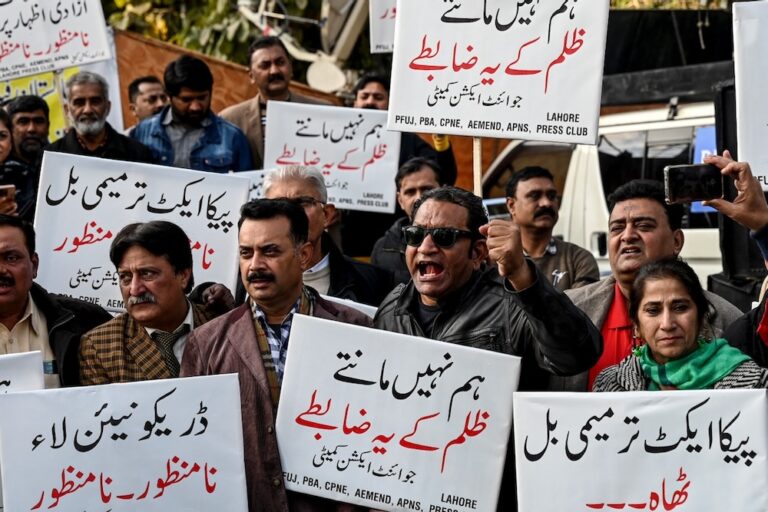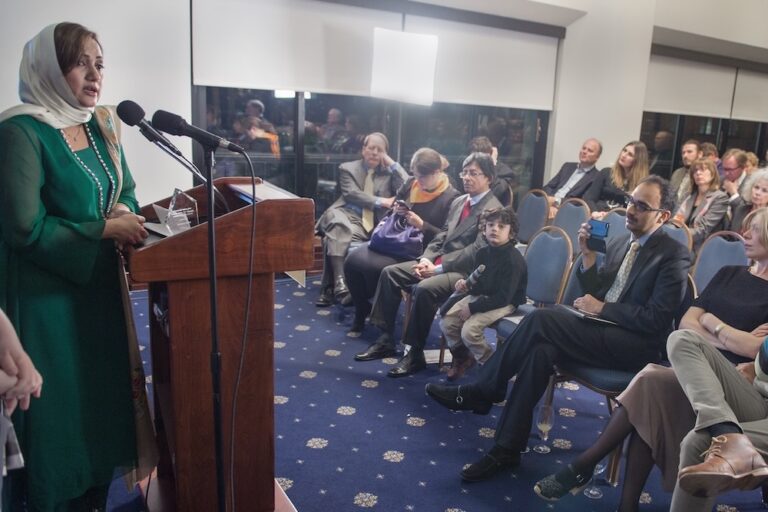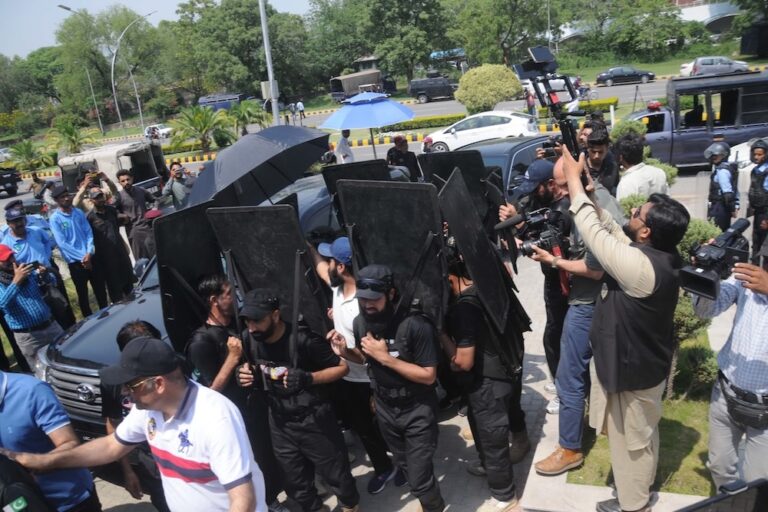(PPF/IFEX) – On 15 August 2005, the publishing licences of the weekly publications “Wajood”, “Zerb-i-Islam” and “Friday Special” were cancelled on the recommendation of the government of Sindh province. The order to cancel the publishing licences effectively banned publication of the three magazines. Press reports quoted the head of city administration, District Coordination Officer Fazlur […]
(PPF/IFEX) – On 15 August 2005, the publishing licences of the weekly publications “Wajood”, “Zerb-i-Islam” and “Friday Special” were cancelled on the recommendation of the government of Sindh province. The order to cancel the publishing licences effectively banned publication of the three magazines.
Press reports quoted the head of city administration, District Coordination Officer Fazlur Rehman, as saying the licences were cancelled under Section 19 of the Press and Publication Ordinance 2002, in the interest of “maintenance of public order and tranquillity.”
Rehman said the action was taken “on publishing objectionable material, which creates sectarian extremism, hatred among various sects and [causes] danger to public safety and order.” The action was taken on the recommendation of the provincial government, which had acted on a police report alleging that the magazines were publishing material that could “fan hatred among the masses.”
In July, police raided the magazines’ offices and arrested “Wajood” editor Muhammad Tahir and “Friday Special” assistant editor Abdul Latif Abu Shamil. Shamil was later released on bail, but Tahir remains in prison (see IFEX alerts of 20 and 19 July 2005).
The Pakistan Federal Union of Journalists (PFUJ) condemned the action against the magazines and called for Tahir’s release. A joint statement by PFUJ President Pervaiz Shaukat and Secretary General Mazhar Abbas termed the cancellation of the publishing licences as “arbitrary and yet another attempt by the government to gag the press and silence the voice of dissent.”


